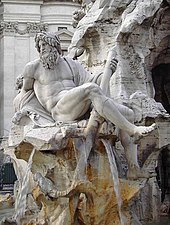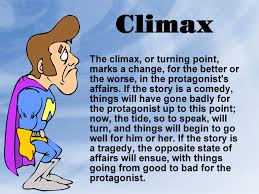Great Expectations
The first chapters of Great Expectations set the plot as well as introduce the main character Pip and his world. Being both narrator and protagonist, Pip is naturally the most important character in Great Expectations. Dickens’s most important task as a writer in Great Expectations is the actual creation of Pip’s himself. The story is told in Pip's words, using his outlook. Because Pip is the voice with which he tells his story, Dickens must make his voice relatable and believable to readers. In this first few pages, Pip is a young child and he is able to depict a childhood relatable by many readers. Dickens uses Pip to characterize any childhood, so innocent yet open to what life has in store.
Pip being a naive young boy agrees to stay true to his promises to the convict and helps him, all the while being horrified and worrisome of his own safety. Dickens shows his own background through Pip in the beginning; the way Pip's parents die, is close in part to how Dickens father was sent to debt prison, which in those times was like death itself. Still, throughout this section, Dickens continues to show Pip's negative qualities: his dishonesty and his guilt. This is characteristic of Pip as a narrator throughout Great Expectations. Despite his many admirable qualities—the strongest of which are compassion, loyalty, and conscience—Pip constantly focuses on his failures and shortcomings. This is also, in part, relating to Dickens actual life because Pip's lack of values comes from a rough background, one that Dickens experienced first- hand as a child.
In the introduction of Great Expectations the convict is the most important occurrence in the plot of the first section. Though Pip believes that the convict’s appearance in his life is an isolated incident, he will feel this character’s influence in many ways throughout the novel. I felt as if this convict so far kind of personified Pip's views on life.
In addition to the introduction of the convict, the other important plot development in the early chapters of Great Expectations occurs at the very end of Chapter 7, when Pip learns he is to be taken to Miss Havisham’s to play. His introduction to Miss Havisham will determine a great part of his story and will change the young boy forever. Though Pip has no sense of the importance of the event, Dickens conveys its importance to the reader through Mrs. Joe and Pumblechook, who are obviously ecstatic at the idea of Pip befriending the wealthy old woman. The idea of a wealthy person in Pip's life leads up to the idea which relates to the title, his "great expectations" for what life holds for him in his unknown future.
Pip has a very low social standing which makes itself clear with his admiration for Miss Havisham as well as seen through his colloquial language. By describing Pip’s early education, Dickens continues to emphasize the idea of self-improvement. Dicken's shows his own struggles through Pip because he came up from nothing and you can see that through how Pip has such a hard time in school.
I feel as if these first few introduction chapters were not only a look into Pip's crazy world it is also an important sense of where Dickens came from. Dicken's allows himself to show through the struggles of Pip and I feel he may also feel a strong connection with Pip. This not only keeps the novel interesting, but it also makes Pip more and more real as I continue to read "Great Expectations" and by the look of success Charles Dickens has accomplished i'm excited to see where his young, innocent character Pip will end up too.
Thursday, January 31, 2013
Dickens
Dickens is known for having self descriptive book titles. You can usually assume what the main character or situation is by simply reading the title. When it comes to A Tale of Two Cities you can guess that it will have something to do with two cities. The stories are about London, England and Paris, France. Dickens decided to write a comparative study between the two of these cities that involve the French Revolution. He wanted to figure out how England contrasted from France. Thus, the tale of two cities.
Wednesday, January 30, 2013
lit terms 31-56
Dialectics: formal debates usually over the nature of truth.
Dichotomy: split or break
between two opposing thing.
Diction: the style of speaking
or writing as reflected in the choice and use of words.
Didactic: having to do with the
transmission of information; education.
Dogmatic: rigid in beliefs and
principles.
.
Epic: a long narrative poem
unified by a hero who reflects the customs, mores, and aspirations of his nation
of race as he makes his way through legendary and historic exploits, usually
over a long period of time (definition bordering on circumlocution).
.
.
Epigram: witty
aphorism.
Epitaph: any brief inscription
in prose or verse on a tombstone; a short formal poem of commemoration often a
credo written by the person who wishes it to be on his
tombstone.
Epithet: a short, descriptive
name or phrase that may insult someone’s
character, characteristics
Euphemism: the use of an
indirect, mild or vague word or expression for one thought to be coarse,
offensive, or blunt.
Evocative (evocation): a
calling forth of memories and sensations; the suggestion or production through
artistry and imagination of a sense of reality.
Exposition: beginning of a
story that sets forth facts, ideas, and/or characters, in a detailed
explanation..
Expressionism: movement in art,
literature, and music consisting of unrealistic representation of an inner idea or
feeling(s).
Fable: a short, simple story,
usually with animals as characters, designed to teach a moral
truth.
Fallacy: from Latin word “to
deceive”, a false or misleading notion, belief, or argument; any kind of
erroneous reasoning that makes arguments unsound.
Falling Action: part of the
narrative or drama after the climax.
Farce: a boisterous comedy
involving ludicrous action and dialogue.
Figurative Language: apt and
imaginative language characterized by figures of speech (such as metaphor and
simile.
Flashback: a narrative device
that flashes back to prior events.
Foil: a person or thing that,
by contrast, makes another seem better or more
prominent.
Folk Tale: story passed on by
word of mouth
Foreshadowing: in fiction and
drama, a device to prepare the reader for the outcome of the action; “planning”
to make the outcome convincing, though not to give it
away.
Free Verse: verse without
conventional metrical pattern, with irregular pattern or no
rhyme.
Sunday, January 20, 2013
Lit Terms 6-30
6. Analogy- a comparasin between two things to show the similarities.

7. Analysis- a method in which a work or idea is separated into its parts, and those parts given rigorous and detailed scrutiny.

8. Anaphora- a device or repetition in which a word or words are repeated at the beginning of two ore more lines, phrases, clauses, or sentences.

9. Anecdote- a very short story used to illustrate a point.

10. Antagonist- a person or force opposing the protagonist in a drama or narrative.

11. Antithesis- a balancing of one term against another for emphasis or stylistic effectiveness.

12. Aphorism- a terse, pointed statement expressing some wise or clever observation about life.

13. Apologia- a defense or justification for some doctrine, piece of writing , cause , or action; also apology.

14. Apostrophe- a figure of speech in which an absent or dead person, an abstract quality, or something inanimate or nonhuman is addressed directly.

15. Argument- the process of convincing a reader by proving either the truth or the falsity of an idea or proposition; also, the thesis or proposition itself.

16. Assumption- the act of supposing, or taking for granted that a thing is true.
I assume that this is fake.

17. Audience- the intended listener or listeners

18. Characterization- the means by which writer reveals a character's personality.

19. Chiasmus- a reversal in the order off words so that the second half of a statement balances the first half in inverted word order.

20. circumlocution- a roundabout or evasive speech or writing, In which many words are used but a few would have served.

21. Classicism- art, literature, and music reflecting the principles of ancient Greece and Rome: tradition, reason, clarity, order, and balance

22. Cliché- a phrase or situation overused within society..

23. Climax- the decisive point in the narrative or drama; the pint of greatest intensity or interest at which plot question is answered or resolved.

24. Colloquialism- folksy speech, slang words or phrases usually used in informal conversation.

25. Comedy- originally a nondramatic literary piece of work that was marked by a happy ending; now a term to describe a ludicrous, farcical, or amusing event designed provide enjoyment or produce smiles and laughter.

26. Conflict- struggle or problem in a story causing tension

27.Connotation- implicit meaning, going beyond dictionary definition

28.Contrast- a rhetorical device by which one element (idea or object) is thrown into opposition to another for the sake of emphasis or clarity.

29.Denotation- plain dictionary definition
See 27. ^
30.Denouement- loose ends tied up in a story after the climax, closure, conclusion.


7. Analysis- a method in which a work or idea is separated into its parts, and those parts given rigorous and detailed scrutiny.

8. Anaphora- a device or repetition in which a word or words are repeated at the beginning of two ore more lines, phrases, clauses, or sentences.

9. Anecdote- a very short story used to illustrate a point.

10. Antagonist- a person or force opposing the protagonist in a drama or narrative.

11. Antithesis- a balancing of one term against another for emphasis or stylistic effectiveness.

12. Aphorism- a terse, pointed statement expressing some wise or clever observation about life.

13. Apologia- a defense or justification for some doctrine, piece of writing , cause , or action; also apology.
14. Apostrophe- a figure of speech in which an absent or dead person, an abstract quality, or something inanimate or nonhuman is addressed directly.
15. Argument- the process of convincing a reader by proving either the truth or the falsity of an idea or proposition; also, the thesis or proposition itself.

16. Assumption- the act of supposing, or taking for granted that a thing is true.
I assume that this is fake.

17. Audience- the intended listener or listeners

18. Characterization- the means by which writer reveals a character's personality.
19. Chiasmus- a reversal in the order off words so that the second half of a statement balances the first half in inverted word order.
20. circumlocution- a roundabout or evasive speech or writing, In which many words are used but a few would have served.

21. Classicism- art, literature, and music reflecting the principles of ancient Greece and Rome: tradition, reason, clarity, order, and balance

22. Cliché- a phrase or situation overused within society..

23. Climax- the decisive point in the narrative or drama; the pint of greatest intensity or interest at which plot question is answered or resolved.
24. Colloquialism- folksy speech, slang words or phrases usually used in informal conversation.
25. Comedy- originally a nondramatic literary piece of work that was marked by a happy ending; now a term to describe a ludicrous, farcical, or amusing event designed provide enjoyment or produce smiles and laughter.
26. Conflict- struggle or problem in a story causing tension
27.Connotation- implicit meaning, going beyond dictionary definition
28.Contrast- a rhetorical device by which one element (idea or object) is thrown into opposition to another for the sake of emphasis or clarity.
29.Denotation- plain dictionary definition
See 27. ^
30.Denouement- loose ends tied up in a story after the climax, closure, conclusion.
Saturday, January 19, 2013
Poetry Analysis
She Walks in Beauty
by Lord Byron
She walks in beauty, like the night
Of cloudless climes and starry skies,
And all that's best of dark and bright
Meets in her aspect and her eyes;
Thus mellow'd to that tender light
Which Heaven to gaudy day denies.
One shade the more, one ray the less,
Had half impair'd the nameless grace
Which waves in every raven tress
Or softly lightens o'er her face,
Where thoughts serenely sweet express
How pure, how dear their dwelling-place.
And on that cheek and o'er that brow
So soft, so calm, yet eloquent,
The smiles that win, the tints that glow,
But tell of days in goodness spent,—
A mind at peace with all below,
A heart whose love is innocent
Ode to Autumn
by John Keats
Season of mists and mellow fruitfulness,
Close bosom-friend of the maturing sun;
Conspiring with him how to load and bless
With fruit the vines that round the thatch-eaves run;
To bend with apples the moss'd cottage-trees,
And fill all fruit with ripeness to the core;
To swell the gourd, and plump the hazel shells
With a sweet kernel; to set budding more,
And still more, later flowers for the bees,
Until they think warm days will never cease;
For Summer has o'erbrimm'd their clammy cells.
Who hath not seen thee oft amid thy store?
Sometimes whoever seeks abroad may find
Thee sitting careless on a granary floor,
Thy hair soft-lifted by the winnowing wind;
Or on a half-reap'd furrow sound asleep,
Drowsed with the fume of poppies, while thy hook
Spares the next swath and all its twinèd flowers:
And sometimes like a gleaner thou dost keep
Steady thy laden head across a brook;
Or by a cyder-press, with patient look,
Thou watchest the last oozings, hours by hours.
Where are the songs of Spring? Ay, where are they?
Think not of them, thou hast thy music too,—
While barrèd clouds bloom the soft-dying day
And touch the stubble-plains with rosy hue;
Then in a wailful choir the small gnats mourn
Among the river-sallows, borne aloft
Or sinking as the light wind lives or dies;
And full-grown lambs loud bleat from hilly bourn;
Hedge-crickets sing; and now with treble soft
The redbreast whistles from a garden-croft;
And gathering swallows twitter in the skies.
If
by Rudyard kipling
If you can keep your head when all about you
Are losing theirs and blaming it on you,
If you can trust yourself when all men doubt you,
But make allowance for their doubting too;
If you can wait and not be tired by waiting,
Or being lied about, don't deal in lies,
Or being hated, don't give way to hating,
And yet don't look too good, nor talk too wise:
If you can dream - and not make dreams your master;
If you can think - and not make thoughts your aim;
If you can meet with Triumph and Disaster
And treat those two impostors just the same;
If you can bear to hear the truth you've spoken
Twisted by knaves to make a trap for fools,
Or watch the things you gave your life to, broken,
And stoop and build 'em up with worn-out tools:
If you can make one heap of all your winnings
And risk it on one turn of pitch-and-toss,
And lose, and start again at your beginnings
And never breathe a word about your loss;
If you can force your heart and nerve and sinew
To serve your turn long after they are gone,
And so hold on when there is nothing in you
Except the Will which says to them: 'Hold on!'
If you can talk with crowds and keep your virtue,
' Or walk with Kings - nor lose the common touch,
if neither foes nor loving friends can hurt you,
If all men count with you, but none too much;
If you can fill the unforgiving minute
With sixty seconds' worth of distance run,
Yours is the Earth and everything that's in it,
And - which is more - you'll be a Man, my son!
Sonnet 18
by William Shakespeare
Shall I compare thee to a summer's day?
Thou art more lovely and more temperate:
Rough winds do shake the darling buds of May,
And summer's lease hath all too short a date:
Sometime too hot the eye of heaven shines,
And often is his gold complexion dimm'd;
And every fair from fair sometime declines,
By chance, or nature's changing course, untrimm'd;
But thy eternal summer shall not fade,
Nor lose possession of that fair thou owest;
Nor shall Death brag thou wander'st in his shade,
When in eternal lines to time thou growest;
So long as men can breathe, or eyes can see,
So long lives this, and this gives life to thee.
How Do I Love Thee?
by Elizabeth Barrett Browning (1806–1861)
How do I love thee? Let me count the ways.
I love thee to the depth and breadth and height
My soul can reach, when feeling out of sight
For the ends of Being and ideal Grace.
I love thee to the level of everyday’s
Most quiet need, by sun and candle-light.
I love thee freely, as men strive for Right;
I love thee purely, as they turn from Praise.
I love thee with the passion put to use
In my old griefs, and with my childhood’s faith.
I love thee with a love I seemed to lose
With my lost saints,—I love thee with the breath,
Smiles, tears, of all my life!—and, if God choose,
I shall but love thee better after death.
by Lord Byron
She walks in beauty, like the night
Of cloudless climes and starry skies,
And all that's best of dark and bright
Meets in her aspect and her eyes;
Thus mellow'd to that tender light
Which Heaven to gaudy day denies.
One shade the more, one ray the less,
Had half impair'd the nameless grace
Which waves in every raven tress
Or softly lightens o'er her face,
Where thoughts serenely sweet express
How pure, how dear their dwelling-place.
And on that cheek and o'er that brow
So soft, so calm, yet eloquent,
The smiles that win, the tints that glow,
But tell of days in goodness spent,—
A mind at peace with all below,
A heart whose love is innocent
Ode to Autumn
by John Keats
Season of mists and mellow fruitfulness,
Close bosom-friend of the maturing sun;
Conspiring with him how to load and bless
With fruit the vines that round the thatch-eaves run;
To bend with apples the moss'd cottage-trees,
And fill all fruit with ripeness to the core;
To swell the gourd, and plump the hazel shells
With a sweet kernel; to set budding more,
And still more, later flowers for the bees,
Until they think warm days will never cease;
For Summer has o'erbrimm'd their clammy cells.
Who hath not seen thee oft amid thy store?
Sometimes whoever seeks abroad may find
Thee sitting careless on a granary floor,
Thy hair soft-lifted by the winnowing wind;
Or on a half-reap'd furrow sound asleep,
Drowsed with the fume of poppies, while thy hook
Spares the next swath and all its twinèd flowers:
And sometimes like a gleaner thou dost keep
Steady thy laden head across a brook;
Or by a cyder-press, with patient look,
Thou watchest the last oozings, hours by hours.
Where are the songs of Spring? Ay, where are they?
Think not of them, thou hast thy music too,—
While barrèd clouds bloom the soft-dying day
And touch the stubble-plains with rosy hue;
Then in a wailful choir the small gnats mourn
Among the river-sallows, borne aloft
Or sinking as the light wind lives or dies;
And full-grown lambs loud bleat from hilly bourn;
Hedge-crickets sing; and now with treble soft
The redbreast whistles from a garden-croft;
And gathering swallows twitter in the skies.
If
by Rudyard kipling
If you can keep your head when all about you
Are losing theirs and blaming it on you,
If you can trust yourself when all men doubt you,
But make allowance for their doubting too;
If you can wait and not be tired by waiting,
Or being lied about, don't deal in lies,
Or being hated, don't give way to hating,
And yet don't look too good, nor talk too wise:
If you can dream - and not make dreams your master;
If you can think - and not make thoughts your aim;
If you can meet with Triumph and Disaster
And treat those two impostors just the same;
If you can bear to hear the truth you've spoken
Twisted by knaves to make a trap for fools,
Or watch the things you gave your life to, broken,
And stoop and build 'em up with worn-out tools:
If you can make one heap of all your winnings
And risk it on one turn of pitch-and-toss,
And lose, and start again at your beginnings
And never breathe a word about your loss;
If you can force your heart and nerve and sinew
To serve your turn long after they are gone,
And so hold on when there is nothing in you
Except the Will which says to them: 'Hold on!'
If you can talk with crowds and keep your virtue,
' Or walk with Kings - nor lose the common touch,
if neither foes nor loving friends can hurt you,
If all men count with you, but none too much;
If you can fill the unforgiving minute
With sixty seconds' worth of distance run,
Yours is the Earth and everything that's in it,
And - which is more - you'll be a Man, my son!
Sonnet 18
by William Shakespeare
Shall I compare thee to a summer's day?
Thou art more lovely and more temperate:
Rough winds do shake the darling buds of May,
And summer's lease hath all too short a date:
Sometime too hot the eye of heaven shines,
And often is his gold complexion dimm'd;
And every fair from fair sometime declines,
By chance, or nature's changing course, untrimm'd;
But thy eternal summer shall not fade,
Nor lose possession of that fair thou owest;
Nor shall Death brag thou wander'st in his shade,
When in eternal lines to time thou growest;
So long as men can breathe, or eyes can see,
So long lives this, and this gives life to thee.
How Do I Love Thee?
by Elizabeth Barrett Browning (1806–1861)
How do I love thee? Let me count the ways.
I love thee to the depth and breadth and height
My soul can reach, when feeling out of sight
For the ends of Being and ideal Grace.
I love thee to the level of everyday’s
Most quiet need, by sun and candle-light.
I love thee freely, as men strive for Right;
I love thee purely, as they turn from Praise.
I love thee with the passion put to use
In my old griefs, and with my childhood’s faith.
I love thee with a love I seemed to lose
With my lost saints,—I love thee with the breath,
Smiles, tears, of all my life!—and, if God choose,
I shall but love thee better after death.
Wednesday, January 16, 2013
Sunday, January 13, 2013
Spring semester plan 1
This semester I plan to do a lot more work into preparing for the ap exam because my goal is to pass it. Also to apply to as many scholar ships as possible. I plan to start applying to a new one every week. That will be very challenging for me but I plan to try my best.
Friday, January 11, 2013
AP Prep Post 1: Siddhartha
A)
1.Siddhartha features substantial activity and narrative action. At the same time, it is about one man’s largely internal spiritual quest. What is the relationship between the internal and exterior worlds of Siddhartha? How does Siddhartha negotiate these worlds?
2. Discuss the ways Siddhartha attempts to attain spiritual enlightenment. Which approaches are successful? Which ones are not successful, and which ones have limited effectiveness? How does Siddhartha progress from one?
3.Consider Siddhartha’s relationship with Govinda. How are they similar, and how are they different? What are the narrative functions of Govinda’s reappearance throughout the novel? How does their relationship impact the novel’s ending?
http://www.sparknotes.com/lit/siddhartha/study.html
4. How does his father show both patience and wisdom in dealing with his son?
5.Describe the Samanas that Govinda and Siddhartha meet close to the end of Chapter 1.
http://www.studymode.com/essays/Siddhartha-Reading-Questions-641015.html
B)
1.Siddhartha is driven to extremes by his desire for spiritual enlightenment and understanding. While he embraces the extremes of physicality in this novel, the initial spark of desire comes from within him. Siddhartha’s initial project is to negate the Self.
2.When Siddhartha leaves his boyhood village, he is armed only with the desire to understand himself and reach enlightenment. He has no concrete, long-term plan for himself other than to seek spiritual fulfillment, and he follows many different paths to reach his goal.
3.Govinda is Siddhartha’s childhood friend and becomes his partner as a spiritual pilgrim. He serves a variety of functions in the novel, both to further the plot and to reveal aspects of Siddhartha we might not otherwise see. Govinda often provides a sounding board for Siddhartha’s ideas
4.At first, Siddhartha’s father shows dissatisfaction and displeasure with his son’s desire to become a Samana. Despite his objection, Siddhartha waits in his room for his father’s approval. His father, although disagreeing, allows his son to leave. His patience and wisdom is tested by his son but even the father understands that his son is a grown man, capable of making wise decisions.
5.The Samanas are warriors who practice self-denial, the loss of need and desire, in order to live a perfect life. They teach Siddhartha about their exercises to extinguish thyself and give birth a new self, one who is connected to everything, nature and animals.
C)
These questions help me understand that the AP test involves a lot more than just comprehending the text. It involves a lot of outside thinking and interpreting themes and author's methods and ideas.
1.Siddhartha features substantial activity and narrative action. At the same time, it is about one man’s largely internal spiritual quest. What is the relationship between the internal and exterior worlds of Siddhartha? How does Siddhartha negotiate these worlds?
2. Discuss the ways Siddhartha attempts to attain spiritual enlightenment. Which approaches are successful? Which ones are not successful, and which ones have limited effectiveness? How does Siddhartha progress from one?
3.Consider Siddhartha’s relationship with Govinda. How are they similar, and how are they different? What are the narrative functions of Govinda’s reappearance throughout the novel? How does their relationship impact the novel’s ending?
http://www.sparknotes.com/lit/siddhartha/study.html
4. How does his father show both patience and wisdom in dealing with his son?
5.Describe the Samanas that Govinda and Siddhartha meet close to the end of Chapter 1.
http://www.studymode.com/essays/Siddhartha-Reading-Questions-641015.html
B)
1.Siddhartha is driven to extremes by his desire for spiritual enlightenment and understanding. While he embraces the extremes of physicality in this novel, the initial spark of desire comes from within him. Siddhartha’s initial project is to negate the Self.
2.When Siddhartha leaves his boyhood village, he is armed only with the desire to understand himself and reach enlightenment. He has no concrete, long-term plan for himself other than to seek spiritual fulfillment, and he follows many different paths to reach his goal.
3.Govinda is Siddhartha’s childhood friend and becomes his partner as a spiritual pilgrim. He serves a variety of functions in the novel, both to further the plot and to reveal aspects of Siddhartha we might not otherwise see. Govinda often provides a sounding board for Siddhartha’s ideas
4.At first, Siddhartha’s father shows dissatisfaction and displeasure with his son’s desire to become a Samana. Despite his objection, Siddhartha waits in his room for his father’s approval. His father, although disagreeing, allows his son to leave. His patience and wisdom is tested by his son but even the father understands that his son is a grown man, capable of making wise decisions.
5.The Samanas are warriors who practice self-denial, the loss of need and desire, in order to live a perfect life. They teach Siddhartha about their exercises to extinguish thyself and give birth a new self, one who is connected to everything, nature and animals.
C)
These questions help me understand that the AP test involves a lot more than just comprehending the text. It involves a lot of outside thinking and interpreting themes and author's methods and ideas.
Subscribe to:
Comments (Atom)




